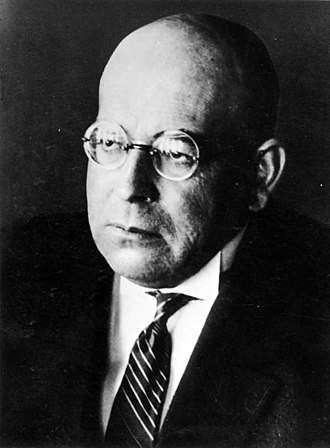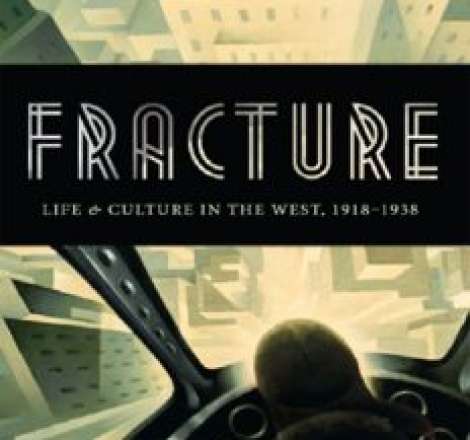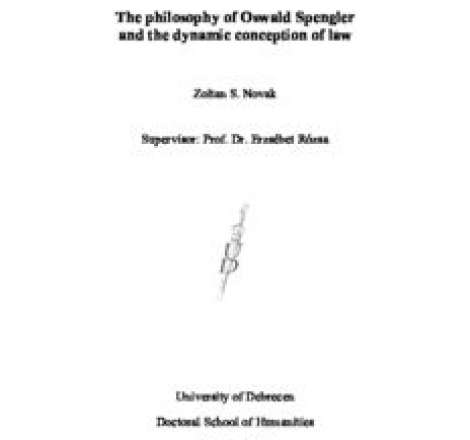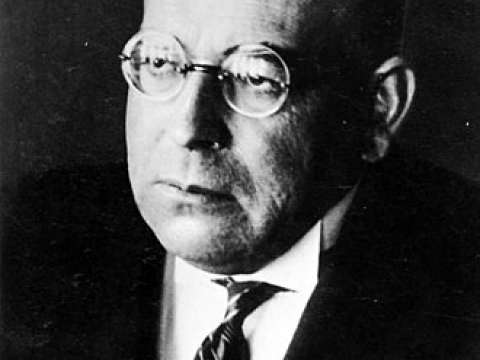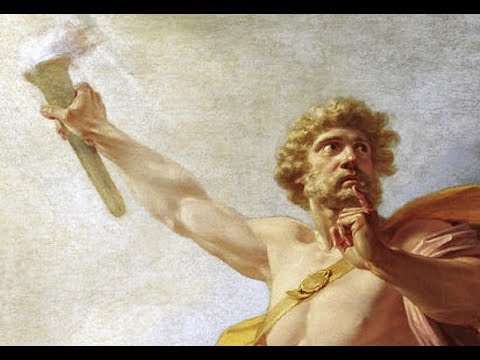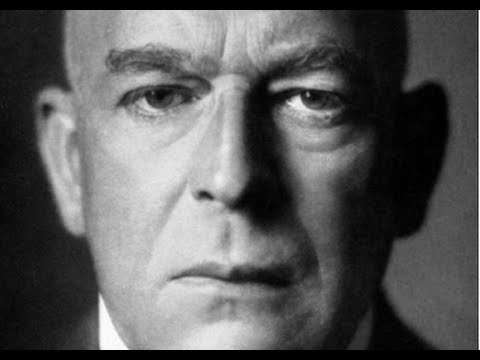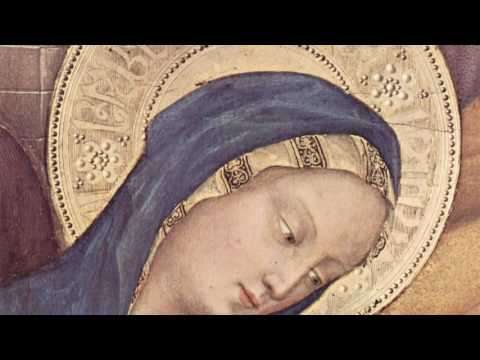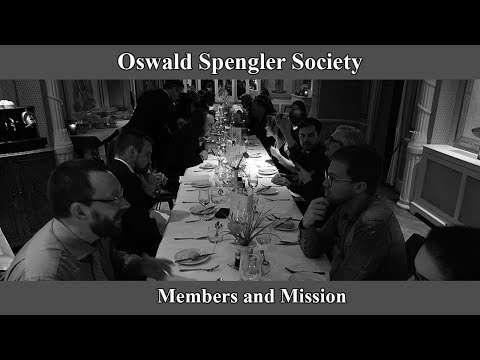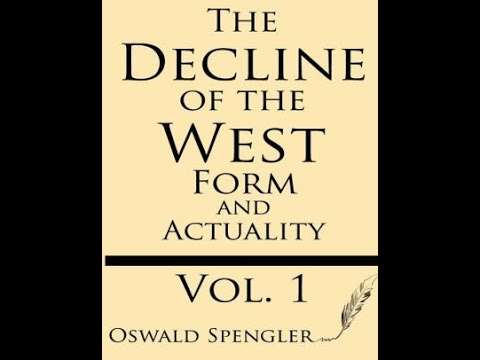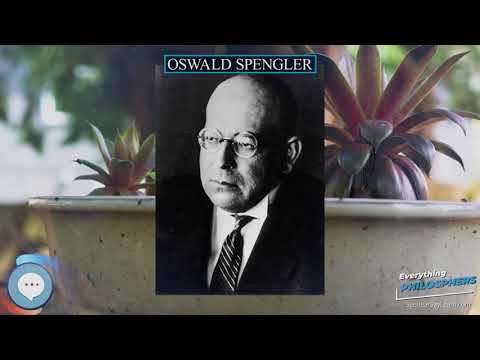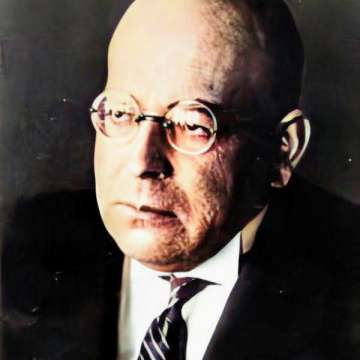

Oswald Spengler (1880-1936)

The press today is an army with carefully organized weapons, the journalists its officers, the readers its soldiers. The reader neither knows nor is supposed to know the purposes for which he is used and the role he is to play.
Oswald Arnold Gottfried Spengler was a German historian and philosopher of history whose interests included mathematics, science, and art and their relation to his cyclical theory of history. He is best known for his two-volume work, The Decline of the West, published in 1918 and 1922, covering all of world history. Spengler's model of history postulates that any culture is a superorganism with a limited and predictable lifespan.
Spengler predicted that about the year 2000, Western civilization would enter the period of pre‑death emergency whose countering would lead to roughly 200 years of Caesarism extraconstitutional omnipotence of the executive branch of the central government before Western Civilization's final collapse.
Spengler is regarded as a nationalist and an anti-democrat, and he was a prominent member of the Conservative Revolution. However, he criticised Nazism due to its excessive racism. Instead, he saw Benito Mussolini, and entrepreneurial types, like the imperialist mining magnate Cecil Rhodes, as embryonic examples of the impending Caesars of Western culture, notwithstanding his stark criticism of Mussolini's imperial adventures.
He strongly influenced other historians, including Franz Borkenau and especially Arnold J. Toynbee and other successors like Francis Parker Yockey, Carroll Quigley and Samuel P. Huntington.
John Calvert notes that he is also popular with the Islamists, who mobilize his critique of the West.
Biography
Early life and family
Oswald Arnold Gottfried Spengler was born on 29 May 1880 in Blankenburg, Duchy of Brunswick, German Empire, the oldest surviving child of Bernhard Spengler 1844–1901, an official in the post office, and Pauline Spengler 1840–1910, née Grantzow, the descendant of an artistic family. Oswald's elder brother was born prematurely eight months in 1879, when his mother tried to move a heavy laundry basket, and died at the age of three weeks. Oswald was born ten months after his brother's death. His younger sisters were Adele 1881–1917, Gertrud 1882–1957, and Hildegard 1885–1942. Oswald's paternal grandfather, Theodor Spengler 1806–76, was a metallurgical inspector Hütteninspektor in Altenbrak.
Oswald's father, Bernhard Spengler, held the position of a postal secretary Postsekretär and was a hard-working man with a marked dislike of intellectualism, who tried to instil the same values and attitudes in his son.
On 26 May 1799, Spengler's maternal great-grandfather, Friedrich Wilhelm Grantzow, a tailor's apprentice in Berlin, married a Jewish woman named Bräunchen Moses c. 1769–1849, whose parents, Abraham and Reile Moses, were both deceased by that time. Shortly before the wedding, Moses was baptized as Johanna Elisabeth Anspachin the surname was chosen after her birthplace—Anspach. The couple had eight children three before and five after the wedding, one of whom was Spengler's maternal grandfather, Gustav Adolf Grantzow 1811–83—a solo dancer and ballet master in Berlin, who in 1837 married Katharina Kirchner 1813–73, a nervously beautiful solo dancer from a Munich Catholic family; the second of their four daughters was Oswald Spengler's mother Pauline Grantzow. Like the Grantzows in general, Pauline was of a Bohemian disposition, and, before marrying Bernhard Spengler, accompanied her dancer sister on tours. She was the least talented member of the Grantzow family. In appearance, she was plump and a bit unseemly. Her temperament, which Oswald inherited, complemented her appearance and frail physique: she was moody, irritable, and morose.
Education
When Oswald was ten years of age, his family moved to the university city of Halle. Here he received a classical education at the local Gymnasium academically oriented secondary school, studying Greek, Latin, mathematics and sciences. Here, too, he developed his propensity for the arts—especially poetry, drama, and music—and came under the influence of the ideas of Johann Wolfgang von Goethe and Friedrich Nietzsche. At 17, he wrote a drama titled Montezuma.
After his father's death in 1901 Spengler attended several universities Munich, Berlin, and Halle as a private scholar, taking courses in a wide range of subjects. His private studies were undirected. In 1903, he failed his doctoral thesis on Heraclitus titled Der metaphysische Grundgedanke der heraklitischen Philosophie The Fundamental Metaphysical Thought of the Heraclitean Philosophy and conducted under the direction of Alois Riehl because of insufficient references. He eventually took the doctoral oral exam again and received his PhD from Halle on 6 April 1904. In December 1904, he set to write the secondary dissertation Staatsexamensarbeit necessary to qualify as a high school teacher. This became The Development of the Organ of Sight in the Higher Realms of the Animal Kingdom Die Entwicklung des Sehorgans bei den Hauptstufen des Tierreiches, a text now lost. It was approved and he received his teaching certificate. In 1905 Spengler suffered a nervous breakdown.
Career
Biographers report his life as a teacher was uneventful. He briefly served as a teacher in Saarbrücken and then in Düsseldorf. From 1908 to 1911 he worked at a grammar school Realgymnasium in Hamburg, where he taught science, German history, and mathematics.
In 1911, following his mother's death, he moved to Munich, where he would live until his death in 1936. He lived as a cloistered scholar, supported by his modest inheritance. Spengler survived on very limited means and was marked by loneliness. He owned no books, and took jobs as a tutor or wrote for magazines to earn additional income.
He began work on the first volume of Decline of the West intending at first to focus on Germany within Europe, but the Agadir Crisis of 1911 affected him deeply, and he widened the scope of his study:
At that time the World-War appeared to me both as imminent and also as the inevitable outward manifestation of the historical crisis, and my endeavor was to comprehend it from an examination of the spirit of the preceding centuries—not years. ... Thereafter I saw the present—the approaching World-War—in a quite other light. It was no longer a momentary constellation of casual facts due to national sentiments, personal influences, or economic tendencies endowed with an appearance of unity and necessity by some historian's scheme of political or social cause-and-effect, but the type of a historical change of phase occurring within a great historical organism of definable compass at the point preordained for it hundreds of years ago.
The book was completed in 1914, but publishing was delayed by the conflict and appeared in 1918, shortly before the end of World War I. It instantly made him a celebrity. Due to a severe heart problem, Spengler was exempted military service. During the war, however, his inheritance was largely useless because it was invested overseas; thus he lived in genuine poverty for this period.
When The Decline of the West was published in the summer of 1918, it was a wild success. The national humiliation of the Treaty of Versailles 1919 and later the economic depression around 1923 fueled by hyperinflation seemed to prove Spengler right. It comforted Germans because it seemingly rationalized their downfall as part of larger world-historical processes. The book met with wide success outside of Germany as well, and by 1919 had been translated into several other languages. Spengler declined a subsequent offer to become Professor of Philosophy at the University of Göttingen, saying he needed time to focus on writing.
The book was widely discussed, even by those who had not read it. Historians took umbrage at his unapologetically non-scientific approach. Novelist Thomas Mann compared reading Spengler's book to reading Schopenhauer for the first time. Academics gave it a mixed reception. Sociologist Max Weber described Spengler as a "very ingenious and learned dilettante", while philosopher Karl Popper called the thesis "pointless".
Aftermath
A 1928 Time review of the second volume of Decline described the immense influence and controversy Spengler's ideas enjoyed during the 1920s: "When the first volume of The Decline of the West appeared in Germany a few years ago, thousands of copies were sold. Cultivated European discourse quickly became Spengler-saturated. Spenglerism spurted from the pens of countless disciples. It was imperative to read Spengler, to sympathize or revolt. It still remains so".
In the second volume, published in 1922, Spengler argued that German socialism differed from Marxism, and was in fact compatible with traditional German conservatism. In 1924, following the social-economic upheaval and inflation, Spengler entered politics in an effort to bring Reichswehr general Hans von Seeckt to power as the country's leader. The attempt failed and Spengler proved ineffective in practical politics.
In 1931, he published Man and Technics, which warned against the dangers of technology and industrialism to culture. He especially pointed to the tendency of Western technology to spread to hostile "Colored races" which would then use the weapons against the West. It was poorly received because of its anti-industrialism. This book contains the well-known Spengler quote "Optimism is cowardice".
Despite voting for Hitler over Hindenburg in 1932, Spengler found the Führer vulgar. He met Hitler in 1933 and after a lengthy discussion remained unimpressed, saying that Germany did not need a "heroic tenor ". He quarreled publicly with Alfred Rosenberg, and his pessimism and remarks about the Führer resulted in isolation and public silence. He further rejected offers from Joseph Goebbels to give public speeches. However, Spengler did become a member of the German Academy in the course of the year.
The Hour of Decision, published in 1934, was a bestseller, but the National Socialist German Workers Party later banned it for its critiques of National Socialism. Spengler's criticisms of liberalism were welcomed by the Nazis, but Spengler disagreed with their biological ideology and anti-Semitism. While racial mysticism played a key role in his own worldview, Spengler had always been an outspoken critic of the pseudo-scientific racial theories professed by the Nazis and many others in his time, and was not inclined to change his views upon Hitler's rise to power. Although himself a German nationalist, Spengler viewed the Nazis as too narrowly German, and not occidental enough to lead the fight against other peoples. The book also warned of a coming world war in which Western Civilization risked being destroyed, and was widely distributed abroad before eventually being banned in Germany. A Time review of The Hour of Decision noted his international popularity as a polemicist, observing that "When Oswald Spengler speaks, many a Western Worldling stops to listen". The review recommended the book for "readers who enjoy vigorous writing", who "will be glad to be rubbed the wrong way by Spengler's harsh aphorisms" and his pessimistic predictions.
Late life and death
On 13 October 1933 Spengler became one of the hundred senators of the German Academy.
Spengler spent his final years in Munich, listening to Beethoven, reading Molière and Shakespeare, buying several thousand books, and collecting ancient Turkish, Persian and Indian weapons. He made occasional trips to the Harz mountains and to Italy. In the spring of 1936 shortly before his death, he prophetically remarked in a letter to Reichsleiter Hans Frank that "in ten years, a German Reich will probably no longer exist" "da ja wohl in zehn Jahren ein Deutsches Reich nicht mehr existieren wird!".
Spengler died of a heart attack on 8 May 1936, in Munich, three weeks before his 56th birthday and exactly nine years before the fall of the Third Reich.
Views
Influences
In the introduction to The Decline of the West, Spengler cites Johann W. von Goethe and Friedrich Nietzsche as his major influences. Goethe's vitalism and Nietzsche's cultural criticism, in particular, can be higlighted in his works.
Spengler was also influenced by the universal and cyclical vision of world history proposed by the German historian Eduard Meyer. The belief in the progression of civilizations through an evolutionary process comparable with living beings can be traced back to classical antiquity, although it is difficult to assess the extent of the influence those thinkers had on Spengler: Cato the Elder, Cicero, Seneca, Florus, Ammianus Marcellinus, and later, Francis Bacon, who compared different empires with each other with the help of biological analogies.
The Decline of the West 1918
The concept of historical philosophy developed by Spengler is founded upon two assumptions: the existence of social entities called 'Cultures' Kulturen, regarded as the largest possible actors in human history, which itself had no metaphysical sense, and the parallelism between the evolution of those Cultures and the evolution of living beings. Spengler numbered nine Cultures: Egyptian, Babylonian, Indian, Chinese, Greco-Roman, 'Magic' or 'Arabic' including early and Byzantine Christianity and Islam, Mexican, Western, and Russian–, interacted between each other in time and space but were distinct from each other by 'internal' attributes. According to him, "Cultures are organisms, and world-history is their collective biography."
Spengler also compares the evolution of Cultures to the different ages of human life, "Every Culture passes through the age-phases of the individual man. Each has its childhood, youth, manhood and old age." When a Culture enters its late stage, Spengler argues, it becomes a 'Civilization' Zivilisation, a petrified body characterized in the modern age by technology, imperialism, and mass society, which he expected to fossilize and decline from the 2000s onward. The first-millennium Near East was, in his views, not a transition between Classical Antiquity, Western Christianity, and Islam, but rather an emerging new Culture he named 'Arabian' or 'Magic', explaining Messianic Judaism, Zoroastrianism, early Christianity, and Islam are different expressions of a single Culture sharing a unique worldview.
The great historian of antiquity Eduard Meyer thought highly of Spengler, although he also had some criticisms of him. Spengler's obscurity, intuitionalism, and mysticism were easy targets, especially for the positivists and neo-Kantians who rejected the possibility that there was meaning in world history. The critic and aesthete Count Harry Kessler thought him unoriginal and rather inane, especially in regard to his opinion on Nietzsche. Philosopher Ludwig Wittgenstein, however, shared Spengler's cultural pessimism. Spengler's work became an important foundation for the social cycle theory.
Prussianism and Socialism 1919
In late 1919, Spengler published Prussianism and Socialism Preußentum und Sozialismus, an essay based on notes intended for the second volume of The Decline of the West in which he argues that German socialism is the correct socialism in contrast to English socialism. In his view, correct socialism has a much more "national" spirit.
According to Spengler, mankind will spend the next and last several hundred years of its existence in a state of Caesarian socialism, when all humans will be synergized into a harmonious and happy totality by a dictator, like an orchestra is synergized into a harmonious totality by its conductor.
According to some recent critics such as Ishay Landa, "Prussian socialism" has some decidedly capitalistic traits. Spengler declares himself resolutely opposed to labor strikes Spengler describes them as "the unsocialistic earmark of Marxism", trade unions "wage-Bolshevism" in Spengler's terms, progressive taxation or any imposition of taxes on the rich "dry Bolshevism", any shortening of the working day he argues that workers should work even on Sundays, as well as any form of government insurance for sickness, old age, accidents, or unemployment.
At the same time as he rejects any social democratic provisions, Spengler celebrates private property, competition, imperialism, capital accumulation, and "wealth, collected in few hands and among the ruling classes." Landa describes Spengler's "Prussian Socialism" as "working a whole lot, for the absolute minimum, but – and this is a vital aspect – being happy about it."
Nazism and Fascism
In his private papers, Spengler denounced Nazi anti-Semitism in even stronger terms, wondering "how much envy of the capability of other people in view of one's lack of it lies hidden in anti-Semitism!", and arguing that "when one would rather destroy business and scholarship than see Jews in them, one is an ideologue, i.e., a danger for the nation. Idiotic." Spengler was an admirer of the old Prussian aristocracy and showed contempt for the proletarian and demagogic character of the Nazi party, and considered the Aryan racial doctrine to be nonsense. In 1934, Spengler pronounced the funeral oration for one of the victims of the Night of the Long Knives and retired in 1935 from the board of the highly influential Nietzsche Archive in opposition to the regime.
Spengler, however, regarded the transformation of ultra-capitalist mass democracies into dictatorial regimes as inevitable, and he had expressed some sympathy for Benito Mussolini and the Italian Fascist movement as a first symptom of this development.
He also considered Judaism to be a "disintegrating element" zersetzendes Element that acts destructively "wherever it intervenes" wo es auch eingreift. In his view, Jews are characterized by a "cynical intelligence" zynische Intelligenz and their "money thinking" Gelddenken. Therefore, they were incapable of adapting to Western culture and represented a foreign body in Europe. With these anti-Semitic speculations Spengler contributed significantly to the enforcement of stereotypes about "the Jews" in pre-WW2 German circles.
Works
- Der metaphysische Grundgedanke der Heraklitischen Philosophie [The Fundamental Metaphysical Idea of the Philosophy of Heraclitus] in German, 1904.
- Der Untergang des Abendlandes: Umrisse einer Morphologie der Weltgeschichte [The Decline of the West: Outlines of a Morphology of world history], Gestalt und Wirklichkeit; Welthistorische Perspektives in German, 1918–22, 2 vols. – The Decline of the West; an Abridged Edition by Helmut Werner tr. by F. Atkinson. "On the Style-Patterns of Culture." In Talcott Parsons, ed., Theories of Society, Vol. II, The Free Press of Glencoe, 1961.
- "On the Style-Patterns of Culture." In Talcott Parsons, ed., Theories of Society, Vol. II, The Free Press of Glencoe, 1961.
- Preussentum und Sozialismus, 1920, Translated 1922 as Prussianism And Socialism by C.F.Atkinson Prussianism and Socialism.
- Pessimismus?, G. Stilke, 1921.
- Neubau des deutschen Reiches, 1924.
- Die Revolution ist nicht zu Ende, c. 1924.
- Politische Pflichten der deutschen Jugend; Rede gehalten am 26. Februar 1924 vor dem Hochschulring deutscher Art in Würzburg, 1925.
- Der Mensch und die Technik, 1931 Man and Technics: A Contribution to a Philosophy of Life, tr. C. T. Atkinson, Knopf, 1932.
- Die Revolution ist nicht zu Ende, 1932.
- Politische Schriften, 1932.
- Jahre der Entscheidung, 1933 The Hour of Decision tr. CF Atkinson.
- Reden und Aufsätze, 1937 ed. by Hildegard Kornhardt – Selected Essays tr. Donald O. White.
- Gedanken, c. 1941 ed. by Hildegard Kornhardt – Aphorisms translated by Gisela Koch-Weser O’Brien.
- Briefe, 1913–1936, 1963 [The Letters of Oswald Spengler, 1913–1936] ed. and tr. by A. Helps.
- Urfragen; Fragmente aus dem Nachlass, 1965 ed. by Anton Mirko Koktanek and Manfred Schröter.
- Frühzeit der Weltgeschichte: Fragmente aus dem Nachlass, 1966 ed. by A. M. Koktanek and Manfred Schröter.
- Der Briefwechsel zwischen Oswald Spengler und Wolfgang E. Groeger. Über russische Literatur, Zeitgeschichte und soziale Fragen, 1987 ed. by Xenia Werner.
More facts
The Decline of the West (2015)

